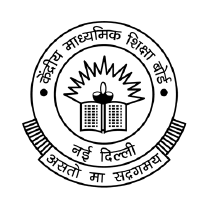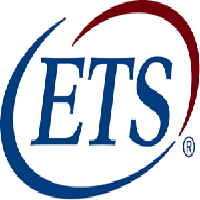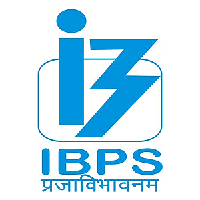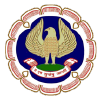
Central Teacher Eligibility Test (CTET)
Based on the latest pattern | Detailed Analysis
Sample Test Paper-1
 100 Questions
100 Questions 100 Marks
100 Marks
Central Teacher Eligibility Test (CTET) Paper 1 Mock Test 1
 120 Questions
120 Questions 120 Marks
120 Marks 120 Mins
120 Mins
Syllabus | ENGLISH | ENVIRONMENT | EXAM SPECIFIC SUBJECT | MATHEMATICS |
Central Teacher Eligibility Test (CTET) Paper 1 Mock Test 2
 120 Questions
120 Questions 120 Marks
120 Marks 120 Mins
120 Mins
Syllabus | ENGLISH | ENVIRONMENT | EXAM SPECIFIC SUBJECT | MATHEMATICS |
Central Teacher Eligibility Test (CTET) Paper 1 Mock Test 3
 120 Questions
120 Questions 120 Marks
120 Marks 120 Mins
120 Mins
Syllabus | ENGLISH | ENVIRONMENT | EXAM SPECIFIC SUBJECT | MATHEMATICS |
Central Teacher Eligibility Test (CTET) Paper 1 Mock Test 4
 120 Questions
120 Questions 120 Marks
120 Marks 120 Mins
120 Mins
Syllabus | ENGLISH | ENVIRONMENT | EXAM SPECIFIC SUBJECT | MATHEMATICS |
Central Teacher Eligibility Test (CTET) Paper 1 Mock Test 5
 120 Questions
120 Questions 120 Marks
120 Marks 120 Mins
120 Mins
Syllabus | ENGLISH | ENVIRONMENT | EXAM SPECIFIC SUBJECT | MATHEMATICS |
The Central Teacher Eligibility Test is organized by the Central Board of Secondary Education (CBSE). The exam is organized twice in a year. This purpose of this exam is to hire eligible and desiring applicants for the posts of teacher for classes 1 to 8 in the central government schools including the NVS, KVS, Tibetan schools and other schools which accept the CTET score. This exam presents a good chance for aspiring applicants to make their careers in the Teaching Department in Central Government schools.
Central Teacher Eligibility Test (CTET) Conducting body:
Central Board of Secondary Education (CBSE) has been approved to conduct entrance examinations for higher educational institutions by the Union Council of Ministers. The following mentioned detail is regarding the Central Teacher Eligibility Test conducted by CBSE.
Central Teacher Eligibility Test (CTET) Important Dates:
|
Events |
Dates |
|
Registration Date |
20/09/2021 |
|
Application Date |
31/10/2022 to 24/11/2022 |
|
Admit Card Date |
04/12/2021 |
|
Exam Date |
New dates 17/01/2022 and 21/01/2022 |
|
Result Date |
15/02/2022 |
|
Mode to Apply |
Online |
|
Link To Apply |
|
|
Official notification |
Central Teacher Eligibility Test (CTET) Selection Procedure: The Central Teacher Eligibility Test is conducted in one stage:
-
Written test (minimum 60 % marks required)
-
Once the candidates clear the exam they can apply for private as well as Govt. schools .
Central Teacher Eligibility Test (CTET) Exam Pattern:
Written Test:- It is an Online test. The total questions are 150 and the total marks are 150. The duration is 2 hours 30 minutes for each part to complete the exam. The exam is Objective and Multiple Choice Type. There is no Negative Marking.
Paper I (Classes I to V) Primary Stage:
|
Subjects |
No. Of Question |
Total Marks |
|
Child Development and Pedagogy |
30 |
30 |
|
Language I |
30 |
30 |
|
Language II |
30 |
30 |
|
Mathematics |
30 |
30 |
|
Environmental Studies |
30 |
30 |
|
Total |
150 |
150 |
Paper-II (classes VI to VIII) Elementary Stage:
|
Subjects |
No. Of Question |
Total Marks |
|
Child Development and Pedagogy (compulsory) |
30 |
30 |
|
Language I (compulsory) |
30 |
30 |
|
Language II (compulsory) |
30 |
30 |
|
(a) For Mathematics and Science teacher |
60 |
60 |
|
Total |
150 |
150 |
Central Teacher Eligibility Test (CTET) Eligibility Criteria:
- Age limit:- Not less than 18 years. No restrictions on the upper age limit.
- Educational Qualification:-
- Minimum Qualifications for Teacher for Classes I-V: Primary Stage-
-
Senior Secondary or it's equivalent with atleast 50% marks Or appearing in the final year of 2- year Diploma in Elementary Education OR
-
Senior Secondary or it's equivalent with atleast 45% marks Or appearing in the final year of 2- year Diploma in Elementary Education in accordance with the NCTE. OR
-
Senior Secondary or it's equivalent with atleast 50% marks Or appearing in the final year of 4- year Bachelor of Elementary Education (B.EI.Ed). OR
-
Senior Secondary or it's equivalent with at least 50% marks Or appearing in the final year of 2- year Diploma in Education (Special Education) OR
-
Graduation with min. 50% marks and Bachelor of Education (B.Ed)
(a) Whoever candidate passed the Bachelor of Education from any NCTE recognised institution shall be considered for appointment as a teacher in classes I to V provided the appointed teacher must undergo a six month Bridge Course in Elementary Education within two years of such appointment as recognised by the NCTE.
- Minimum Qualifications for Teacher for Classes VI-VIII: Elementary Stage
-
Graduate or appearing in the final year of 2-year Diploma in Elementary Education OR
-
Graduation with min. 50% marks or appearing in 1st-year Bachelor in Education(B. Ed). OR
-
Graduation with min. 45% marks and passed or appearing in 1st-year Bachelor in Education(B. Ed). OR
-
Senior Secondary or it's equivalent with minimum 50% marks or appearing in the final yearof 4- year Bachelor in Elementary Education. OR
-
Senior Secondary or its equivalent with minimum 50% marks or appearing in the final year of 4- year B.A.Ed/B.Sc.Ed. or B.A/B.Sc.Ed. OR
-
Graduation with min. 50% marks or appearing in 1-year B.Ed. (Special Education). OR
-
Any candidate who has qualified the B.Ed. program recognized by the NCTE is eligible to appear in TET/CTET.
Central Teacher Eligibility Test (CTET) Syllabus:
The syllabus for the exam is as follows. Candidates can prepare for the exam according to the following syllabus.
- Child Development:
-
Concept of development and its relationship with learning
-
Concepts of child-oriented education
-
Construction of Intelligence
-
Principles for the development of children
-
Heredity & Environment impacts.
-
Social processes: Social world & children
-
Differences among students such as language, caste, gender, community, religion.
-
Thought & Language
-
Multi-Dimensional Intelligence
-
Distinction between Assessment for learning
-
Gender as a social construct and educational practice
-
School-Based Assessment, Continuous & Comprehensive
-
Evaluation: perspective and practice
-
Theories of Piaget, Kohlberg and Vygotsky
- Understanding children with special needs and Concept of Inclusive education
-
Addressing the needs of children with learning problems.
-
Addressing learners from diverse backgrounds
-
Addressing the Talented, Creative, Specially able students.
- Learning and Pedagogy
-
Children's thinking, learning and the reason of failure, if any, in achieving the success
-
Basic method of teaching and learning
-
Understanding the errors of children
-
Learning and Motivation
-
Emotions & Cognition
-
Factors contributing to learning
II. Language I
(a) Language Comprehension
-
Unseen passages comprehension, grammar, and verbal ability
(b) Pedagogy of Language Development
-
Role of speaking and listening
-
Challenges of teaching language in a diverse classroom such as language difficulties & errors
-
Teaching materials
-
Remedial Teaching & Language Skills
-
Principles of Language Teaching
III. Language II
(a) Comprehension
-
Unseen passages comprehension
(b) Pedagogy of Language Development
-
Listening and speaking;
-
Challenges of teaching language in a diverse classroom such as language difficulties & errors
-
Teaching materials
-
Remedial Teaching & Language Skills
-
Principles of Language Teaching
IV. Mathematics and Science
(i) (a) Mathematics -
-
Number System
-
Algebra
-
Ratio and Proportion
-
Geometry
-
Mensuration
(b) Pedagogical issues
-
Problem of Teaching
-
Remedial Teaching
-
Nature of Mathematics/Logical thinking
-
Evaluation
-
Language of Mathematics
(ii) (a) Science
-
Food, Sources & Components of food
-
Materials of daily use
-
Magnets
-
Electric current and circuits
-
Natural Phenomena & Natural Resources
(b) Pedagogical issues
-
Natural Science/Aims & objectives
-
Nature & Structure of Sciences
-
Understanding & Appreciating Science
-
Innovation
-
Observation/Experiment/Discovery
-
Remedial Teaching
-
Problems
V. Social Studies/Social Sciences
(a) History
-
The Earliest Societies and their living
-
The First Empire and Contacts with Distant lands
-
Culture and Science & Political Developments
-
New Kings and Kingdoms
-
Sultans of Delhi and their Architecture, Social Change, Regional Cultures
-
The Establishment of Company Power
-
Colonialism and Tribal Societies
-
The Revolt of 1857-58
-
The Nationalist Movement
-
India After Independence
Geography:
-
Geography - social study as well as science
-
Planet: Earth and Solar system
-
Environment - Natural and Human environment
-
Resources: Natural and Human
-
Agriculture
-
Government
-
Democracy
-
Media
-
The Constitution
-
The Judiciary
-
Parliamentary Government
(b) Pedagogical issues
-
Nature & Concept of Social Science/Social Studies
-
Problems of teaching Social Science/Social Studies
-
Developing Critical thinking
-
Projects Work
-
Evaluation
-
Class Room Processes, activities and discourse.
Central Teacher Eligibility Test (CTET) FAQs:
Ques 1. After qualifying the CTET, am I eligible for getting the Job?
Ans. Qualifying CTET does not confer a right on any person for Recruitment/Employment as it is only one of the eligibility criteria for appointment.
Ques 2. What is the number of attempts for a candidate to avail for CTET?
Ans. There is no limit for appearing in CTET.
Ques 3. What is the validity period of the CTET certificate?
Ans. According to the NCTE guidelines, the validity period of CTET is lifetime.
Ques 4. Can a candidate appear in Paper-I or Paper-II in different cycles?
Ans. Yes.
Ques 5. Is there any provision for Re-evaluation of the exam?
Ans. The machine-grading answer sheets are evaluated with extreme care and are repeatedly scrutinized. No request for re-checking, re-assessment, re-evaluation or scrutiny of exam.
Ques 6. Can a candidate apply for CTET again if he/she has already qualified the CTET before?
Ans. Yes. There is no restriction.
Ques 7. What is the Confirmation page?
Ans. Confirmation page shows that your application form and fee have been received online to the Board. The page shows all the particulars filled during Online registration by the candidate and according to those filled particulars, the candidate gets the Admit Card.
Ques 8. If any candidate made a mistake while filling the form in any particular, What should they do?
Ans. They can correct it online. For online correction, the time period is announced along with the schedule of the examination.
Ques 9. When do you dispatch the Marks Sheet/Eligibility Certificate?
Ans. It is dispatched after one month from the declaration of result.
Ques 10. How the city for exam centre is allotted?
Ans. Generally, the Board makes an effort to allot the exam centre in the city as per candidate's first choice of exam city. However, the Board reserves the right to allot any centre/city.
Ques 11. What is Information Bulletin?
Ans. Information Bulletin is an official document published by CBSE on CTET website, having all the important information relating to CTET.
Ques 12. Who gets the Marks Sheet and Eligibility Certificate?
Ans. All the candidates who appear in CTET get the Marks Statement and a person who scores 60% or more in the TET exam considered as TET Pass.
Ques 13. Is it compulsory to have B Ed for CTET exam?
Ans. Yes, B.Ed is compulsory to be eligible to appear in CTET examination. For becoming teacher for classes I-V, B.Ed is not required and must have completed 12th standard or equivalent with an aggregate of 50% marks and passed or appearing in 2- year Diploma's final year in Elementary Education.
Ques 14. What is the benefit of qualifying CTET?
Ans. According to Central Board of Secondary Education CTET certificate is the minimum eligibility for central government teaching job. After qualifying CTET, students can apply for Central Government Teaching job like KVS, NVS Army Teacher, ERDO etc.
Ques 15. Is CTET compulsory for special educator?
Ans. Special Education), must also have passed the Central Teacher Eligibility Test (CTET) conducted by CBSE.
CONCLUSION : CTET (Central Teaching Eligibility Test) is a great oppurtunity for the candidates who are seeking teaching as their career. Stay in touch with us and also follow official website for further notifications. All the best for the exam.

.jpg)

.jpg)

.jpg)
.jpg)
.jpg)
.jpg)


